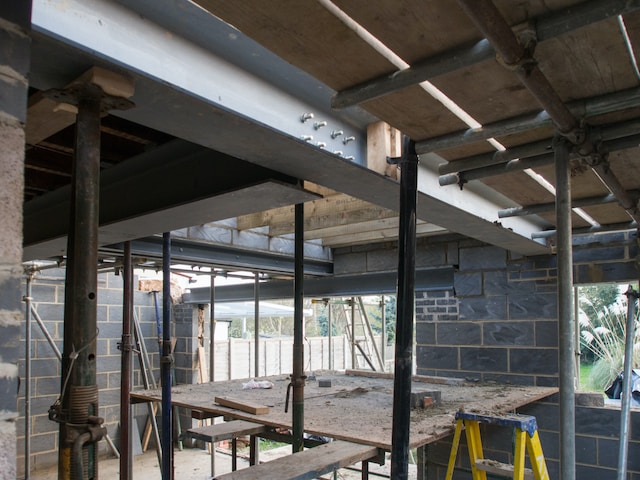Residential plumbers are skilled in new installations and repair of toilets, faucets, water heaters, and other plumbing fixtures. They also offer preventative maintenance services that can help keep your home’s plumbing system running smoothly.

Commercial and residential plumbers have similar responsibilities, but their daily tasks differ. For instance, both plumbers must solve problems like leaky toilets and broken pipes. Contact Woodland Hills Plumber for professional help.
As a homeowner, you can do many things to improve your property. You can decorate your house, make renovations and build structures in the backyard. But there are also responsibilities that come with owning a home. One of the most important is plumbing maintenance and repair. The plumbing system in your home is a network of pipes that transports water and waste. When these pipes become clogged, it can cause serious problems. The good news is that you can hire a plumber to clean your drains.
Most clogs in your home are caused by organic debris like food scraps, hair, soap scum, and dirt that accumulate in the drain lines over time. The natural minerals in your home’s water can also build up on the walls of your pipe and cause clogs. If these clogs aren’t removed, they can lead to backups in your sinks, tubs, and toilets. A reputable plumber can use special tools to remove these clogs and clean your drain lines.
You might be tempted to try DIY solutions such as chemical drain cleaners or plungers for your plumbing issues. But these chemicals are dangerous to your health and can damage the interior of your pipes. In addition, using a plunger may actually make the problem worse by causing air bubbles in your drains. A reputable plumber can safely and effectively clean your drains without damaging your pipes.
A clogged drain can cause other plumbing issues, such as overflowing toilets, backed-up showers, and flooded floors. These issues can be difficult to resolve and may require the help of a professional plumber.
Choosing the right residential plumber can save you a lot of money in the long run. To find the best plumber, you can ask your friends and neighbors for recommendations or look online for reviews. Once you’ve narrowed down your choices, ask each plumber for a free quote and compare their rates. Choose a plumber that offers a wide range of services and can handle both minor and major plumbing repairs. A reputable plumber will charge you fair prices for their services and won’t overcharge you.
Leak detection
There are many things that can go wrong with your plumbing system. One of the most common is water leaks. These can occur in your pipes or at your fixtures. If you don’t address them quickly, they can lead to expensive damage and waste. Water leak detection services are available to help you find the source of the problem and fix it.
A residential plumber can help with a number of leak detection techniques. They can use thermal imaging to detect hot or cold spots in your pipes. These images can show a pipe’s location and the extent of any damage. They can also use acoustic techniques to locate leaks. These methods are non-invasive and do not require digging or cutting into your pipes.
Leaks are often caused by age-related issues or a buildup of debris. A residential plumber can clean out drains and remove any obstructions to stop clogs. They can also install or repair water filters to prevent debris from entering your pipes. A residential plumber can also help you with your hot water heater, garbage disposal, and other major appliances.
Water leaks can be difficult to notice. If you have a multi-story home, it might be even harder to pinpoint the source of a leak. Leak detection systems can save you money on your water bill and reduce the risk of costly damages.
If you notice unexplained wet spots on your floors or walls, contact a residential plumber as soon as possible. These can be signs of a hidden leak in your home’s plumbing. A professional can use a variety of tools to test for a leak, including electronic moisture meters and thermal imaging cameras.
Licensed residential plumbers are trained to perform a variety of tasks. They can install or replace toilets, faucets, and other household fixtures. They can also inspect and repair your entire plumbing system to identify problems before they become serious. They can repair and fit a wide range of pipe materials, including copper, PVC, and cast iron. They can also work on sewer lines and septic systems.
Sewer line repair
Your home’s sewer line runs underground from your house to the main city line in the street. If this line becomes damaged, clogged, dislocated or otherwise stops working correctly, your entire home’s drain system will stop functioning. If you think you have a problem with your sewer line, contact your plumber for inspections and repairs. A professional will thread a camera into the pipes to check their condition and look for any blockages, holes, collapsed sections or other issues. They can then recommend the best way to fix it, including traditional trenching or more modern options like pipe bursting and trenchless sewer line repair.
A residential plumber will also diagnose any other problems with your plumbing, such as a broken toilet tank or a leaking water heater. Leaking or clogged pipes can lead to serious water damage in your home and result in expensive repairs. A plumber can help you avoid these issues by detecting them in the early stages and providing prompt, effective repairs.
One of the most common signs that your sewer line is in need of repair is the smell of sewage in your yard or in your basement. Sewer odors indicate that sewage is backing up through cracks or leaks in the line. If you notice this symptom, call your plumber right away to schedule a sewer line replacement service.
The cost of a sewer line repair depends on the scope of work and how long it takes to complete. Depending on your home’s layout and the location of the problem, it could take one day to several days for a plumber to complete the job. In addition to the cost of labor, a homeowner should consider the costs of any materials required for the repair or replacement.
When the sewer line is repaired or replaced, your plumber may need to excavate a large portion of your property. This can cause significant damage to lawns, driveways and landscaping, which will add to the overall cost of the job. Your plumber will mark the location of the pipes with spray paint before beginning the excavation. They will also need to know about any utility lines that are running beneath your property, so they can be avoided during the process.
Faucet installation and repair
As a homeowner, you may be responsible for many things at home, from decorating and building projects to repairing and replacing plumbing fixtures. While you can try to tackle these jobs yourself, it’s often best to hire a residential plumber. The right plumber can evaluate your problem, propose a solution, and make the necessary repairs quickly and effectively. To find the right plumber for your home, you should research both national and local companies and read reviews. You should also ask friends and family for recommendations.
In addition to installing and repairing faucets, residential plumbers can install water heaters and other home appliances. They can also repair clogged drains and sewer lines. These plumbers can also handle backflow testing and installation. Backflow testing is required by law in some areas to prevent contamination of drinking water. These services can save you money in the long run by preventing unnecessary leaks and backups.
Leaky faucets are one of the most common problems that homeowners face. A leaking sink can cause serious damage to floors and cabinets, not to mention the extra water bill you’ll have to pay each month. If you have a leaking faucet, you should first shut off the water supply valves beneath it. Then, you can take a look at the faucet itself. If the faucet is old, it’s probably time to replace it. It may also be a good idea to replace the faucet if it’s leaking around the handle or stem.
Another sign that it’s time to replace your faucet is if it has a hard time turning on and off. This problem is usually caused by mineral deposits that have built up over time. Using penetrating oil can help loosen these deposits and ease the faucet’s movement. However, if the problem persists, it’s best to contact a plumber for help.
A plumber should be licensed to work in your home. You can check a plumber’s licensing status by visiting your state or city’s website. Licensed plumbers have undergone training and passed a written exam to prove their competency. They should also have insurance to cover any damages caused by their work.
